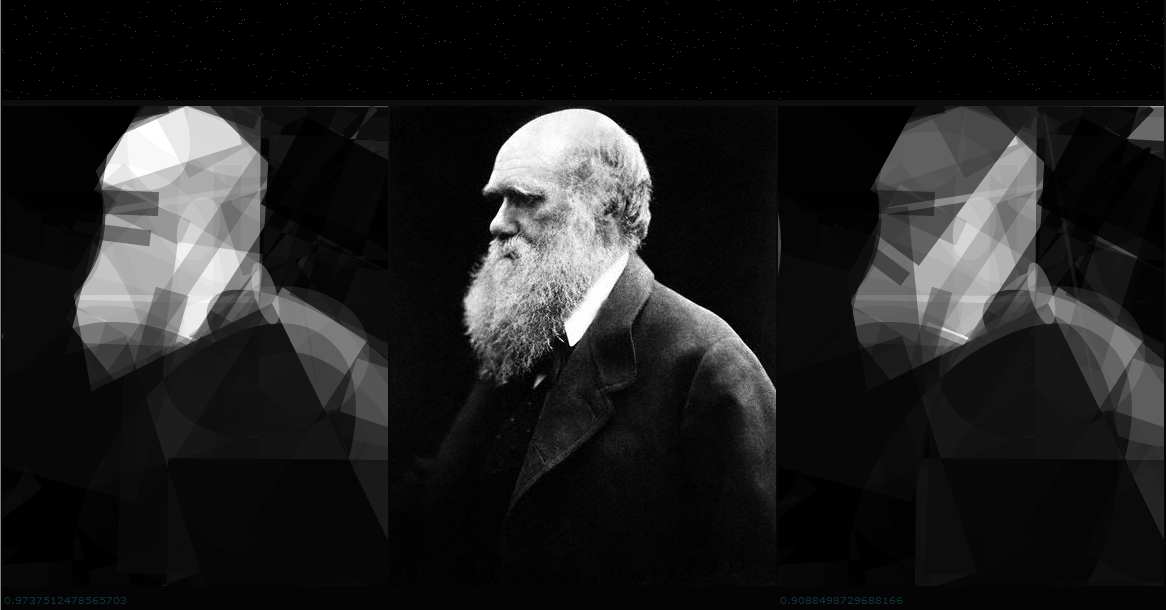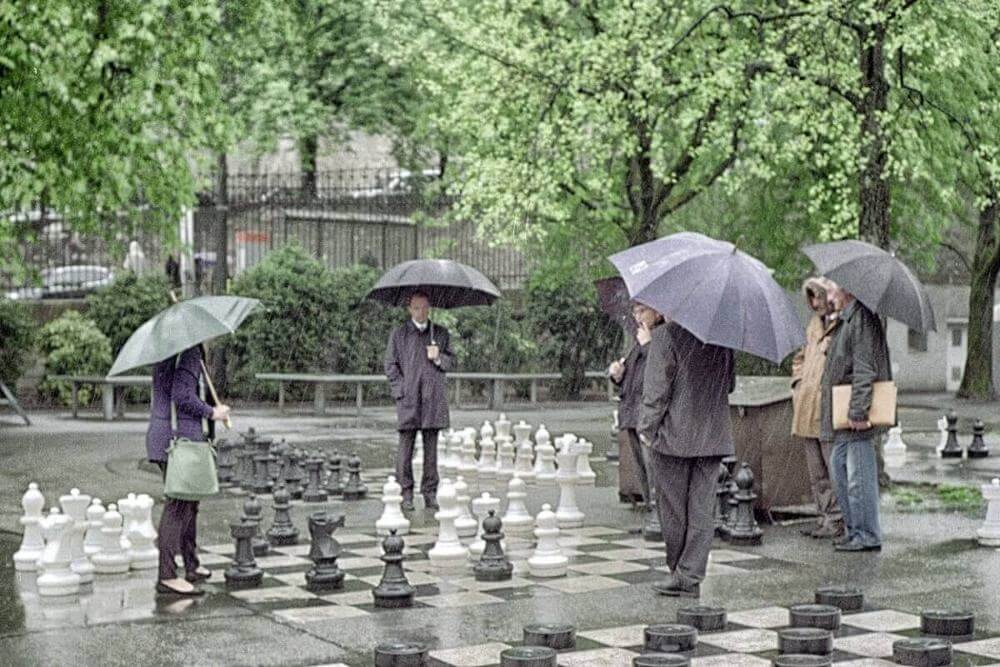“The complexity of things—the things within things—just seems to be endless. I mean nothing is easy, nothing is simple.” —Alice Munro
I catch a lot of flak in my family for not being an avid dog lover. Every time someone raves about how much they love dogs, I get a sideways glance that barks, “Why can’t you be more like that?” The truth is that I like dogs, AND I have a hard time accepting the daily dirt, the constant cash drain, and the mandatory late night walks when I would rather be cuddling on the couch. Does that make me a dog hater?? It’s not as simple as labeling me a non-dog-lover, and calling me Scrooge. I’m more complex than that—I hope.
In preparation for this post, I took a shallow dive into complexity theory,
i.e. the notion that things aren’t as simple as they seem. Technically, complexity theory is defined as the study of complex and chaotic systems that shows how order, pattern, and structure can arise from them; or the theory that processes having a large number of seemingly independent agents can spontaneously order themselves into a coherent system. Scientists at MIT suggest that complexity results from failure of the Newtonian Paradigm to be generic. Now, if that doesn’t sound like MIT talk, I don’t know what does.

In simpler terms, some say that the real world is made up of complex things and the world of simple mechanisms is a fictitious plot created by science.
Experiments involving the reduction of complex systems to their component parts and then studying those parts in a context formulated according to certain dynamics dominate the scientific literature. If you would like to take a deeper but user-friendly dive into complexity theory, check out this wonderful 10 minute YouTube overview.
Please don’t run away. The rest of this post is highly accessible.
I will provide some simple ways to look at complexity—more in line with the dog than the dogmatists.

Let’s take a look at several issues that are being represented simplistically as “yes-no” propositions: pro-gun or anti-gun, pro-life or pro-choice, pro-immigration or anti-immigration, globalization or nationalism, religious or not-religious, good marriage or bad marriage. It seems to me that our simplistic, either/or approach to life is at the heart of conflict. As Alice Munro said, “nothing is simple.”
Pro-gun or anti-gun

I believe people should have the right to own guns, AND I am for sensible restrictions on the purchase of assault rifles, bump stocks, and large magazines. I support universal background checks and restrictions on people with mental illness. That seems simple enough, AND I am aware of the complexities of determining who has mental illness and what constitutes an assault weapon.
Pro-choice or pro-life
I believe women have the right to make choices regarding their bodies and their health, AND I am an advocate for thoughtful consideration of any decision to end a life. There are so many factors making this issue so complex: economic considerations, religious beliefs, the health of the mother and the baby, quality of life factors etc. George Will recently wrote an article about how Iceland has eliminated almost 100% of Down Syndrome births through prenatal testing. If the child is determined to be Down Syndrome, almost all mothers choose abortion. While I understand that decision, having had Down Syndrome kids on both sides of the family whom I loved would complicate that choice for me. The point is that abortion is a very personal and complex issue. For me, it can’t be reduced to a universal yes or no. AND, as a man, I have no right to dictate what a woman chooses to with her body.
Pro-Immigration or anti-immigration
This is a particularly polarizing issue these days because so many lower income people have seen so many of their jobs disappear over the past few decades. Immigration is thus seen as a threat to their livelihood even though it may be an irrational reaction. I believe in a liberal immigration policy, AND I understand the need to protect the border and reduce illegal entry. There is plenty of research showing that crime rates among immigrants are lower than people who are born here, and that immigrants have been a great source of innovation and job creation in our society. How to determine a reasonable path to citizenship, how to provide asylum for people in war torn countries, and how to control the border, however, are complex problems with inter-related systems. Do you see why I started this post with a basic introduction to complexity theory?
Globalization or Nationalism

I believe in free trade, AND I am not naïve about China’s unwillingness to create an even playing field, let their currency fluctuate, promote human rights, and protect intellectual property. I have been a strong opponent of nationalistic fervor, AND I believe America has provided incredible opportunities for people and has played a vital leadership role on the geo-political stage. I love the beauty of our land, our constitution, and our rich diversity, AND I deplore our history of racism and capitalistic abuse. We are host to some of the best universities in the world, AND many low income kids suffer from an inferior education. We have conducted some of the best research in the world, created some of the most innovative products in the world, and provide specialized health care that is unparalleled. AND, our infant mortality rates are higher than most developed countries while our costs are twice as high as other nations. So, in response to the question, “Are you for us or against us?”, I must respond I am for much of what makes us great AND against what makes us terrible.
Religious or non-religious
Oh boy, here’s a charged one. I could cop by saying, “I’m spiritual but not religious,” but the SBNR response may be too simplistic. I am not religious, AND I attend Unitarian Universalist services which many people describe as church or a religion. And what is a religion? It is defined as a set of beliefs concerning the cause, nature, and purpose of the universe usually involving devotional and ritual observances and conducting a moral code governing the conduct of human affairs. According to that definition, I could be considered religious, AND I will continue to object to that label. It’s just not simple.
Good marriage or bad marriage
I believe there are usually a lot or good things that keep marriages intact AND a lot of irritating aspects that cause relationships to fray. To me, the big question is “Are there enough strong connection points to override the disconnects?” What makes the answer really complex is that connection points are dynamic. They change over time. So there are three big questions to live in here: 1) what are our connection points? 2) what are our disconnects? 3) how have those connections changed over time?

I could go on and on, but the examples above should serve to make the point. Things are rarely as simple as they may seem.
Simplicity typically comes after complexity, not before. It takes a lot of work to get to an elegantly simple solution.
AND provides a safe space to deal with differences. Paradoxically, AND is a simple way of capturing complexity.
It is said that an indicator of intelligence is the ability to hold contradictory thoughts in your head at the same time.
AND encourages us to enter into the complexity of competing and/or contradictory ideas.
Let us embrace complexity and all its challenges instead of hiding behind simplistic answers that result in either/or, lose-lose, battles.
So the next time someone asks you if you are a dog lover or not, you can simply say, “It’s more complex than that!” Now go pet your dog. And watch the YouTube video on complexity theory.
Four years ago: Finding Meaning
One year ago: Experience and Expression
Also published on Medium.




Wow! Loved it Ricky! I have struggled myself with my own black and white views/thoughts in an in increasingly gray world! Thanks for your insights-you’re the man! RonnyDonny